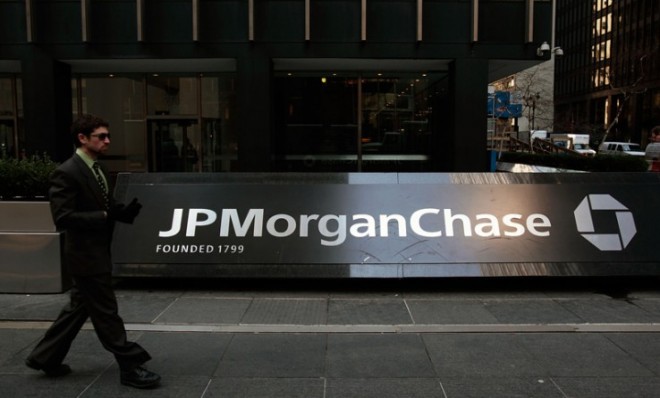Breaking up the big banks
A "long-standing truth-teller" on the excesses of too-big-to-fail banks says they need to be broken into pieces

A free daily email with the biggest news stories of the day – and the best features from TheWeek.com
You are now subscribed
Your newsletter sign-up was successful
Too-big-to-fail banks have failed us, said Gretchen Morgenson in The New York Times, and now a "long-standing truth-teller" on their excesses is suggesting they be "chopped into pieces." Richard Fisher, president of the Federal Reserve Bank of Dallas, argued last week that despite the Dodd-Frank Act, the nation's megabanks still have taxpayers on the hook for future bailouts, and are also gumming up the Fed's recovery efforts by sitting on funds instead of lending them out. The 12 largest of the nation's 5,600 commercial banks hold 69 percent of assets, Fisher points out, but they make little of that money available to the general economy; most small-business loans come from much smaller community banks. As "a voice of the establishment," Fisher is hardly proposing taking an ax to the megabanks, said Josh Boak in The Fiscal Times. His suggestion is to make federal deposit insurance and cheap Fed loans apply only to retail operations, not to security trading and other more speculative operations. That would compel the biggest banks to "behave more responsibly, possibly spinning off their riskiest divisions under market pressure."
Even Jamie Dimon is now paying lip service to reining in the banks, said Jonathan Weil at Bloomberg. The head of JPMorgan Chase said this week that we should "get rid of too-big-to-fail." Well, yes, who could argue with that? But such pious talk from the likes of Dimon is "like Darth Vader bemoaning the intergalactic dominance of the Death Star." Instead of suggesting that somebody take action, "JPMorgan should be doing something about JPMorgan to make sure it's not too big to fail — like break itself up." Yet we all know "that's a pipe dream."
"Senators from opposite ends of the U.S. political spectrum," though, are now seriously taking up the cause, said William Isaac and Cornelius Hurley in the Financial Times. There's a growing realization that we need to end the taxpayer guarantees that Dodd-Frank left in place for "systemically important" banks like JPMorgan, Goldman Sachs, Citigroup, and Bank of America. To control risk-taking, "the failure of a business must always be a realistic option." Maybe this new Congress will finally get tough with these privileged institutions, said Robert Reich in the San Francisco Chronicle. "The oven is ready. All we need is another multibillion-dollar banking loss due to bad bets — like JPMorgan Chase's $6 billion loss last year — and the biggest banks are cooked."
The Week
Escape your echo chamber. Get the facts behind the news, plus analysis from multiple perspectives.

Sign up for The Week's Free Newsletters
From our morning news briefing to a weekly Good News Newsletter, get the best of The Week delivered directly to your inbox.
From our morning news briefing to a weekly Good News Newsletter, get the best of The Week delivered directly to your inbox.
A free daily email with the biggest news stories of the day – and the best features from TheWeek.com
-
 Why are election experts taking Trump’s midterm threats seriously?
Why are election experts taking Trump’s midterm threats seriously?IN THE SPOTLIGHT As the president muses about polling place deployments and a centralized electoral system aimed at one-party control, lawmakers are taking this administration at its word
-
 ‘Restaurateurs have become millionaires’
‘Restaurateurs have become millionaires’Instant Opinion Opinion, comment and editorials of the day
-
 Earth is rapidly approaching a ‘hothouse’ trajectory of warming
Earth is rapidly approaching a ‘hothouse’ trajectory of warmingThe explainer It may become impossible to fix